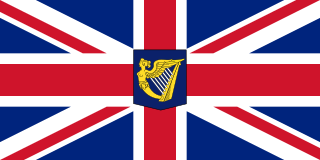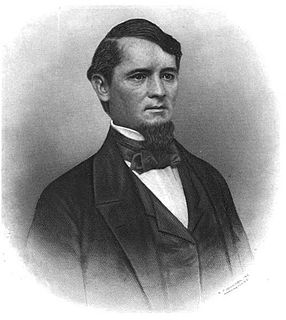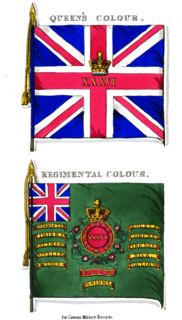Related Research Articles

Ireland, also known as the Republic of Ireland, is a country in north-western Europe occupying 26 of 32 counties of the island of Ireland. The capital and largest city is Dublin, which is located on the eastern side of the island. Around 40% of the country's population of 4.9 million people resides in the Greater Dublin Area. The sovereign state shares its only land border with Northern Ireland which is part of the United Kingdom. It is otherwise surrounded by the Atlantic Ocean, with the Celtic Sea to the south, St George's Channel to the south-east, and the Irish Sea to the east. It is a unitary, parliamentary republic. The legislature, the Oireachtas, consists of a lower house, Dáil Éireann, an upper house, Seanad Éireann, and an elected President who serves as the largely ceremonial head of state, but with some important powers and duties. The head of government is the Taoiseach, who is elected by the Dáil and appointed by the President; the Taoiseach in turn appoints other government ministers.

The Great Famine, also known as the Great Hunger or the Great Starvation and sometimes referred to as the Irish Potato Famine mostly outside Ireland, was a period of mass starvation and disease in Ireland from 1845 to 1849. With the most severely affected areas in the west and south of Ireland, where the Irish language was dominant, the period was contemporaneously known in Irish as An Drochshaol, loosely translated as the "hard times". The worst year of the period was 1847, known as "Black '47". During the famine, about one million people died and a million more emigrated, causing Ireland's population to fall by between 20% and 25%.

The 1840s was a decade of the Gregorian calendar that began on January 1, 1840, and ended on December 31, 1849.

Anthony Wayne was an American soldier, officer and statesman of Irish descent. He adopted a military career at the outset of the American Revolutionary War, where his military exploits and fiery personality quickly earned him promotion to brigadier general and the nickname "Mad Anthony". He later served as the Senior Officer of the Army on the Ohio Country frontier and led the Legion of the United States.
Ireland has been neutral in international relations since the 1930s. The nature of Irish neutrality has varied over time, and has been contested since the 1970s. Historically, the state was a "non-belligerent" in the Second World War and has never joined NATO, although during the Cold War it was anti-communist and aloof from the Non-Aligned Movement. The compatibility of neutrality with Ireland's membership of the European Union has been a point of debate in EU treaty referendum campaigns since the 1990s. The Seville Declarations on the Treaty of Nice acknowledge Ireland's "traditional policy of military neutrality", reflecting the narrow formulation of successive Irish governments. Others define Irish neutrality more broadly, as having "a strong normative focus, with a commitment to development, United Nations peacekeeping, human rights and disarmament".
Events from the year 1922 in Ireland.

Ireland was part of the United Kingdom of Great Britain and Ireland from 1801 to 1922. For almost all of this period, the island was governed by the UK Parliament in London through its Dublin Castle administration in Ireland. Ireland underwent considerable difficulties in the 19th century, especially the Great Famine of the 1840s which started a population decline that continued for almost a century. The late 19th and early 20th centuries saw a vigorous campaign for Irish Home Rule. While legislation enabling Irish Home Rule was eventually passed, militant and armed opposition from Irish unionists, particularly in Ulster, opposed it. Proclamation was shelved for the duration following the outbreak of World War I. By 1918, however, moderate Irish nationalism had been eclipsed by militant republican separatism. In 1919, war broke out between republican separatists and British Government forces. Subsequent negotiations between Sinn Féin, the major Irish party, and the UK government led to the signing of the Anglo-Irish Treaty, which resulted in five-sixths of Ireland seceding from the United Kingdom.

In the United Kingdom reserved matters and excepted matters are the areas of public policy where the UK Parliament has retained the exclusive power (jurisdiction) to make laws (legislate) in Scotland, Wales and Northern Ireland.

William Hawkins Polk was an American politician and a member of the United States House of Representatives for Tennessee's 6th congressional district from 1851 to 1853. He was the younger brother of President James K. Polk. Prior to his election to Congress, he had been a member of the Tennessee House of Representatives (1841–1845), served as U.S. Minister to the Kingdom of the Two Sicilies (1845–1847), and fought as a major in the Mexican–American War.

The 31st (Huntingdonshire) Regiment of Foot was an infantry regiment of the British Army, raised in 1702. Under the Childers Reforms it amalgamated with the 70th (Surrey) Regiment of Foot to form the East Surrey Regiment in 1881.
Carlos Antonio Carrillo, was Governor of Alta California from 1837 to 1838. He took his oath as governor in Pueblo de Los Angeles, present day Los Angeles, on December 6, 1836. He was also the great-grandfather of actor Leo Carillo.

The 36th (Herefordshire) Regiment of Foot was an infantry regiment of the British Army, raised in 1701. Under the Childers Reforms it amalgamated with the 29th (Worcestershire) Regiment of Foot to form the Worcestershire Regiment in 1881. Its lineage is continued today by the Mercian Regiment.
The 80th Regiment of Foot was an infantry regiment of the British Army, raised in 1793. Under the Childers Reforms it amalgamated with the 38th Regiment of Foot to form the South Staffordshire Regiment in 1881. Its lineage is continued today by the 3rd Battalion, Mercian Regiment.
The 62nd (Wiltshire) Regiment of Foot was an infantry regiment of the British Army, which was raised in 1756 and saw service through the eighteenth and nineteenth centuries. Under the Childers Reforms it amalgamated with the 99th (Lanarkshire) Regiment of Foot to form the Wiltshire Regiment in 1881.

The Mexican–American War, also known in the United States as the Mexican War and in Mexico as the Intervención Estadounidense en México, was an armed conflict between the United States and Mexico from 1846 to 1848. It followed the 1845 U.S. annexation of Texas, which Mexico still considered Mexican territory since the government did not recognize the Velasco treaty signed by Mexican General Antonio López de Santa Anna when he was a prisoner of the Texian Army during the 1836 Texas Revolution. The Republic of Texas was de facto an independent country, but most of its citizens wished to be annexed by the United States. Domestic sectional politics in the U.S. prevented that since Texas would have been a slave state, upsetting the balance of power between northern free states and southern slave states. In the 1844 United States presidential election, Democrat James K. Polk was elected on a platform of expanding U.S. territory in Oregon and Texas. Polk advocated expansion by either peaceful means or by armed force, with the 1845 annexation of Texas as furthering that goal. For Mexico, this was a provocation, but Polk went further, sending U.S. Army troops to the area; he also sent a diplomatic mission to Mexico to try to negotiate the sale of territory. U.S. troops' presence was provocative and designed to lure Mexico into starting the conflict, putting the onus on Mexico and allowing Polk to argue to Congress that a declaration of war should be issued. Mexican forces attacked U.S. forces, and the United States Congress declared war.

Ireland–Spain refers to the current and historical relations between Ireland and Spain. Both states are members of the European Union and the Organisation for Economic Co-operation and Development.

The Extradition Act 2003 (c.41) is an Act of the Parliament of the United Kingdom which regulates extradition requests by and to the United Kingdom. The Act came into force on 1 January 2004. It transposed the European Arrest Warrant framework decision into British law and implemented the UK side of the controversial UK–US extradition treaty of 2003 before the treaty came into force in April 2007 after being ratified by the US Senate in 2006.
The following events occurred in May 1944:
Karen Elizabeth Todner is a British solicitor. Her clients include hacker Ryan Cleary linked with LulzSec, Gary McKinnon known as the "Pentagon Hacker", and Lauri Love.
References
- 1 2 "Making History". Jude Collins. Archived from the original on 13 November 2017. Retrieved 12 November 2017.
- ↑ "British Army's role in the Famine". The Sunday Independent. Retrieved 12 November 2017.
- ↑ "IRA Slaying Link Labelled a Smear". Chicago Tribune. 1 May 1990. Retrieved 12 November 2017.
- ↑ "When Irish Eyes Aren't Smiling". Chicago Tribune. 4 July 1993. Retrieved 12 November 2017.
- ↑ "Entirely Censored". The Pensive Quill. Retrieved 12 November 2017.